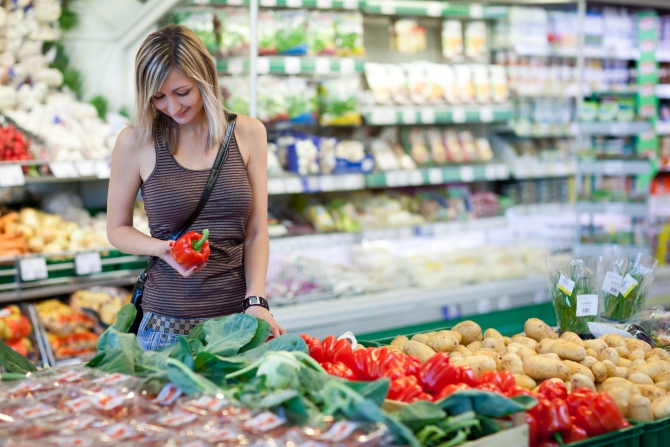As the pressure on supermarkets continues to mount, it seems that the Big Four are caught in a never-ending downward spiral which is leeching profits, cutting sales and forcing them to halt ambitious store opening programmes.

Unfortunately, the latest report from Kantar Worldpanel indicates that the current climate in which they operate is worsening, with grocery sales now falling for the first time on record.
According to the report, in the 12 weeks to the 9th of November the amount spent by British consumers in major grocery stores dropped by 0.2 per cent. This is the first time such an event has occurred in Kantar Worldpanel’s 20 years of examining regular data from the sector.
In essence, this now means that the Big Four – Tesco, Sainsbury’s, Asda and Morrisons – need no longer consider each other their main sources of competition. Now, this accolade goes to Aldi, Lidl and Waitrose, each of whom enjoyed a significant lift in sales during the 12 week period.
Head of retail and consumer insight at Kantar Worldpanel, Fraser McKevitt, warns that this latest data could spell trouble for the Big Four during the upcoming Christmas trading season.
He says; “The declining grocery market will be of concern to retailers as they gear up for the key Christmas trading season.
“The fight for a bigger share of sales has ignited a price war, which means an average basket of everyday goods such as milk, bread and vegetables now costs 0.4 per cent less than it did this time last year.
“This is bad news for retailers, but good news for shoppers with price deflation forecast to continue well into 2015.”
Tesco remains the hardest hit of the big four, with a quarterly sales decline of 3.7 per cent during the period just slightly worse than Morrisons’ 3.3 per cent drop. Sainsbury’s suffered a fall of 2.5 per cent, while Asda remains the most stable performer with a sales drop of only 0.2 per cent.
However, discounters and upmarket brands benefited hugely in the past three months, with Lidl experiencing a sales hike of 16.8 per cent and Waitrose a slightly more modest 5.6 per cent growth. Aldi remains the standout performer in the field with sales climbing by 25.5 per cent.
Earlier this week, Goldman Sachs analysts expressed a belief that, in order to remain sustainable, Tesco, Sainsbury’s and Morrisons should each close around 20 per cent of their existing stores. However, with the discounters continuing their aggressive expansion strategies, this may risk the Big Four’s opportunities to attract new customers.
Although organisations such as the British Retail Consortium (BRC) have been noting a trend for falling food sales for quite some time, Kantar Worldpanel’s report is the first collection of data which showcases the magnitude of the problems facing the Big Four. Unfortunately, though, the way forward for executives at the country’s biggest grocery brands remains extremely difficult to predict.
Previous Post
Chinese Company in talks over flight to Airport City